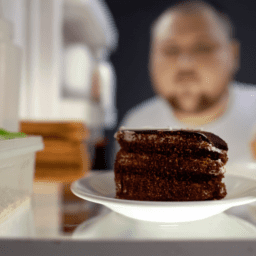IN THIS EPISODE WITH DR. Irene Malaty, YOU WILL LEARN:
- What is Parkinson’s dyskinesia?
- What causes it?
- How does it differ from rest tremor in Parkinson’s or essential tremor?
- What are the different types of dyskinesia?
- Is dyskinesia painful?
- What are common treatments for dyskinesia?
- Are there any non-pharmacological or complementary therapies that can minimize dyskinesia?
- Is dyskinesia inevitable?
- And much more!
Panel members for the webinar included Amy Carlson, Davis Phinney Foundation Ambassador, Karen St. Clair, Parkinson’s Care Partner, and Cidney Donahoo, Davis Phinney Foundation Ambassador.
To download the transcript, click here.
Note: This is not a flawless word-for-word transcript, but it’s close.
notes
- Dyskinesia is the abnormal, involuntary, and excessive movement that can be seen in Parkinson’s. When people have lived with Parkinson’s long enough, they may begin to experience involuntary wiggling movements when they take their dopamine replacement medication or when it’s at peak dose.
- Most people experience Parkinson’s dyskinesia when their levodopa medicine is at its peak, but there is a subset of people who have diphasic dyskinesia and experience it when their medication is wearing off.
- Dyskinesia is different for everyone and can include wiggling or writhing movements.
- Respiratory dyskinesia, a rare variant, can cause people during their peak dose, to feel like they can’t breathe, and they can have an irregular respiratory pattern.
- Parkinson’s dyskinesia, a side effect of levodopa medications, can be viewed as “overactive muscle movement.” By avoiding levodopa medications, people with Parkinson’s would likely instead suffer from “underactive muscle movements,” such as stiffness, slowness, and rigidity.
- Some people with Parkinson’s are hesitant to take levodopa because they worry it will cause dyskinesia, but it has been shown that the duration of your time with Parkinson’s is what predicts dyskinesia, not how long you’ve been on medicine.
- Stress, excitement, and other intense emotions can increase dyskinesia, so it can be helpful to pay attention to your own triggers and to keep lists of when you experience the most bothersome dyskinesias.
- For some people with Parkinson’s, deep brain stimulation (DBS) dramatically decreases their dyskinesia. For others, especially those with diphasic dyskinesia, they do not see as many improvements in dyskinesia fluctuations.
- Medical treatments for dyskinesia include adjustments in dosing and timing; adding new formulations of carbidopa/levodopa that are time-released; adding amantadine preparations to your medication regimen; switching to dopamine agonists; DBS; lesional therapies; or a continuous carbidopa/levodopa enteral infusion (Duopa pump).
- Research currently under way is studying continuous subcutaneous levodopa infusion, which infuses levodopa under the skin.
- Unlike dyskinesia, tremor is a regular, oscillating involuntary muscle movement. Dyskinesia, on the other hand, is more of a dancing, wiggling sort of involuntary movement and is more irregular.
- Dystonia, another symptom many people with Parkinson’s experience, is an involuntary activating of muscles that should be working in coordination but are instead tensing at the same time.
- Parkinson’s dyskinesia can become more bothersome the longer you live with Parkinson’s.
- Exercise is a proven way to slow the progression of Parkinson’s and cognitive decline. Choose a form you enjoy and that you can safely do on a regular basis.
- Because Parkinson’s changes over time, you medications and dosages will change over time as well. Forming a close relationship with your wellness team and keeping them updated about your symptoms will help you live well with Parkinson’s.
Thanks for Listening!
To share your thoughts:
- Leave a note in the comment section below.
- Ask a question by emailing us here.
- Share this show on Facebook.
To help out the show:
- Leave an honest review on iTunes. Your ratings and reviews really help, and we read each one.
- Subscribe on iTunes.
Listen & Subscribe
Apple Podcasts | Stitcher | SoundCloud | Google Podcasts
*The Second Season of the Parkinson’s Podcast is made possible through generous support in honor of Dr. Margaret Hilgartner.
This episode is sponsored by Adamas Pharmaceuticals Inc.


















